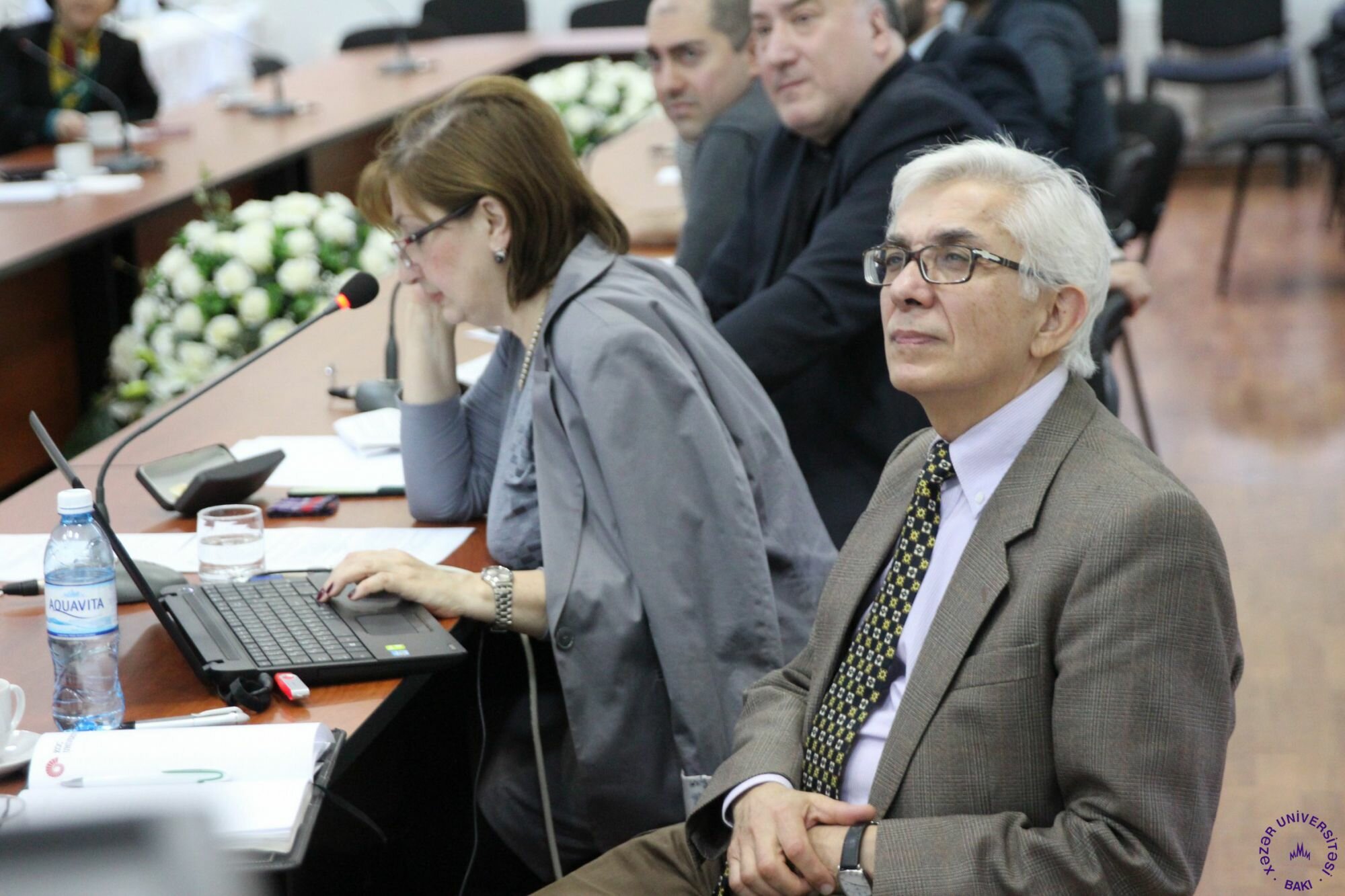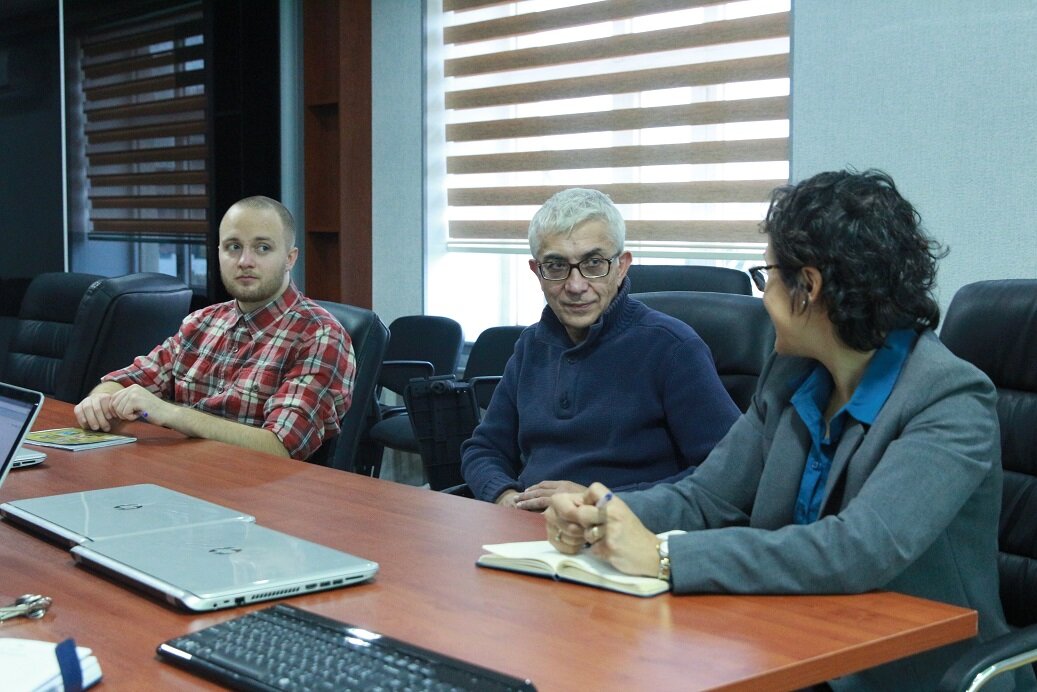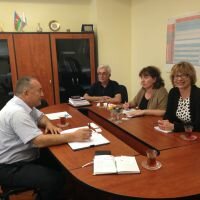In December 2015, the Khazar University (KUB) and the Ankara Policy Center (AMP) organised a roundtable discussion with students on the European Neighbourhood Policy at the Khazar University (Baku, Azerbaijan).
In her lecture, Dr. Burcu Gültekin Punsmann, a senior researcher at the APM and a contributor to the ISSICEU project, gave an overview of the evolution of the ENP in the last decade and discussed new challenges of the regional integration in the Black Sea & Caucasus regions. Dr. Punsmann elaborated on the future of Turkey-EU relations as well as discussed Turkey's role in the Mediterranean cooperation and how its candidate status affects the country's role in the Euro-Mediterranean cooperation. In addition, Dr. Punsmann discussed with students the impact of the slow-down of Turkey's accession process to the EU on democratization and talked about problems of regionalization in the wider Black Sea area. Such issues as Turkish-Armenian problems, Turkish relations with Maghreb countries and the Middle East as well as Turkey's role on the current refugee crisis was debated in the conclusion of the lecture.
Afterwards, the participants discussed the abovementioned topics in greater detail. The interactive discussion shed light on how Turkish-EU relations can impact regional dynamics in the Caucasus region.
Along with students of the Department of Political Science, participants included Dr. Farda Asadov, Director of the Center for Eurasian and Middle Eastern Studies, and Dr. Mukhtar Hajizada, Head of the Department, the Khazar University.



